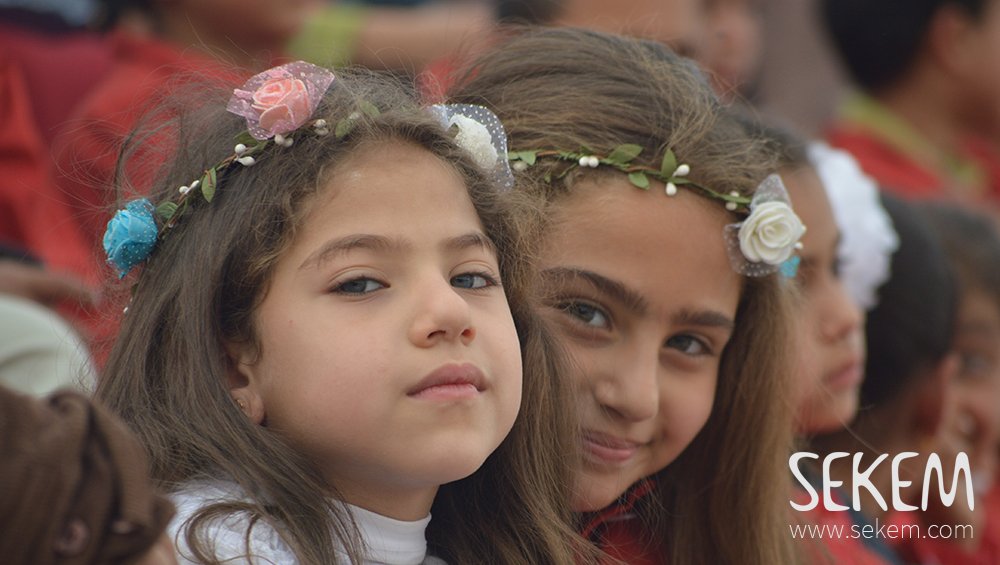“…creating a place where every human being can unfold his or her individual potential”
The right awareness about the fact that fertile land and agriculture are feeding us and that our lives rely on them every day seems to be missing all over the world. In a country like Egypt, which is hardly trying to combat the growing desertification, this is even more dangerous. Proper education, science and research in regards to the environment and natural resources are urgently needed. Otherwise, it will have tragic impacts to land degradation and by implication the growing desertification will decrease the cultural and educational life in Egypt, which people rely on in regards to individual and societal development and awareness.
Egypt is not only losing land for its people to live on, but in the same time the population is rapidly growing – from around 30 million in the 1960s to approximately 90 million today. Roughly 40% of Egyptians are between 10 and 20 years old.
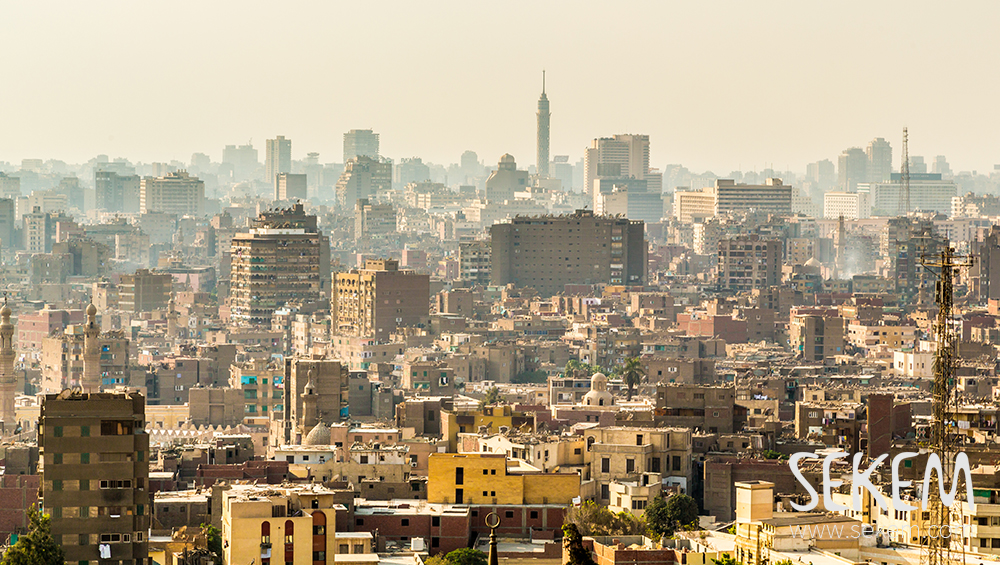
In order to combat desertification, there has to be first and foremost awareness about the impacts that the increasing land degradation combined with growing population has. But, proper education is missing.
Poor public education system
Actually, the first impression is not that bad: Public education in Egypt is for free. But this is fool’s gold. It is not uncommon that there are up to 70 students per class. Teachers are underpaid, which forces them to take up a second job and due to the big classes, children have to take extra lessons to pass. The public school buildings and surroundings are often in bad conditions. Proper cleanliness and hygiene is missing. The curricula is often targeting monotonous learning instead of fostering deeper understanding or encouraging independent thinking.
Egypt is ranked last out of 148 countries surveyed in the 2012-2013 Global Competitiveness Report, published by the World Economic Forum, for the quality of its primary education. The overall illiteracy rate in Egypt was estimated to 25% in 2015.
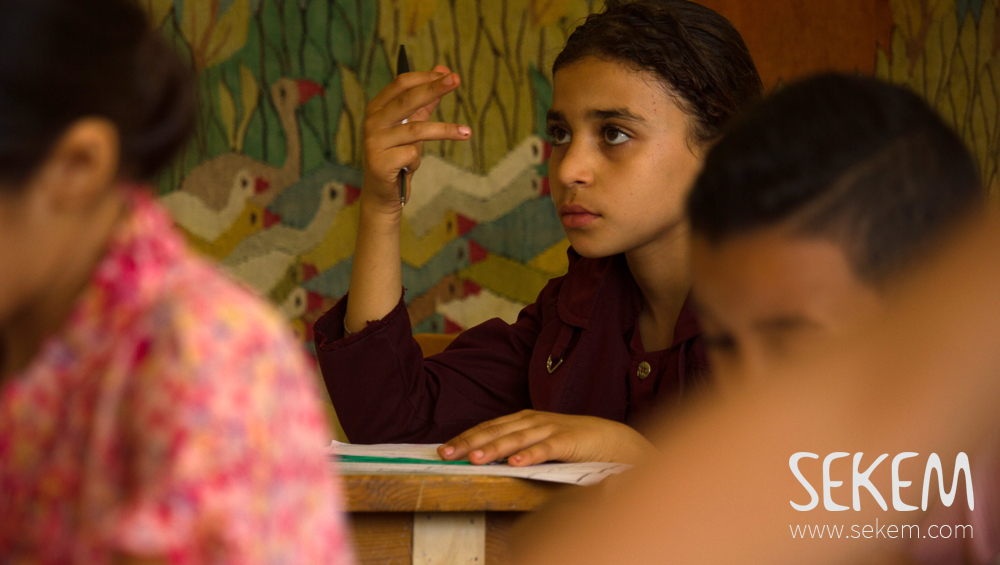
Places for cultural activities, like arts or music as well as philosophical discourses are rare. Hence, the pre-conditions to lay down a proper understanding and awareness about the impacts that a growing desertification has and how to combat it are not given. But, if the topic does not find its way to the cultural and human development dimensions, sustainable land reclamation won’t have a chance. In the same time the situation will become even worse. Land will erase more and more and thereby also the places to build and create knowledge and awareness. A vicious circle.
In SEKEMs holistic vision of sustainable development, cultural activities, including education, have the same value as economy, societal life and ecology. SEKEM sees the impacts of desertification in these four dimensions and in the same time the possibility to combat the challenges by creating awareness around all those sectors.
Creating awareness for the environment to deal with it in a conscious way
The SEKEM educational institutions, starting from nursery, Kindergarten, primary, preparatory and secondary school going over a Vocational Training Center, a School for Children with Special Needs and finally the Heliopolis University for Sustainable Development, all foster the individual development of children and young adults and creating awareness and understanding by a holistic educational approach, which is based on Waldorf education. Although, the schools are following the governmental curriculum, pupils receive extra lessons that strengthen their cultural and practical skills and their individual creativity. Carpentry, pottery making or a special art of movement belong to their everyday school life as well as direct activities in and with nature.
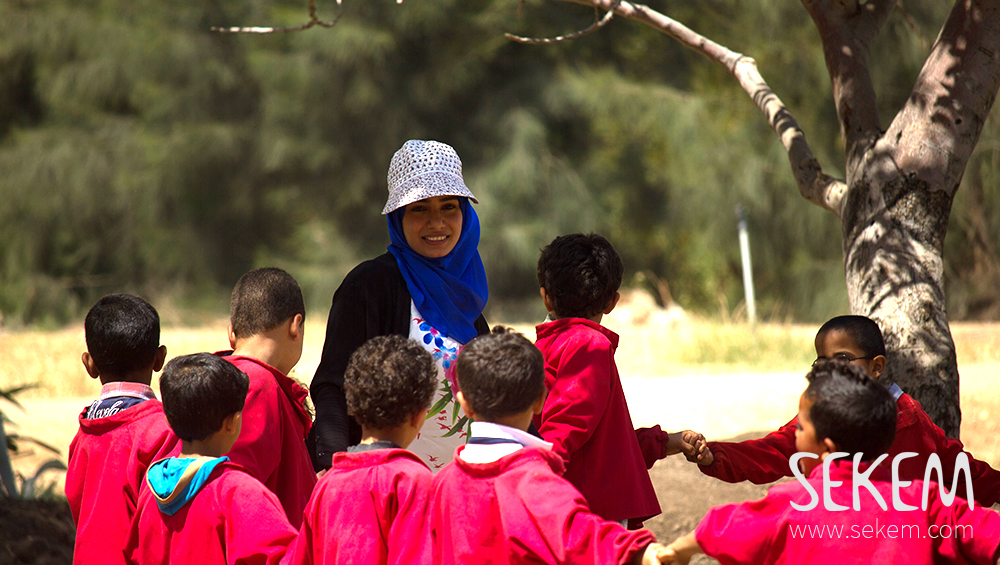
The SEKEM Environmental Science Center, for instance, offers interactive science classes on environmental topics to students from the SEKEM Community, as well as from local and international schools. SEKEMs Vocational Training Center, which offers eight different technical professions is constantly linking to sustainably handling natural resources. Hence, for example the leftover cuttings of the carpentry are brought to the special education school where the young kids create toys out of it. Another department is producing solar water heaters, which shall promote renewable energies and help to integrate them into all institutions belonging to SEKEM Initiative.
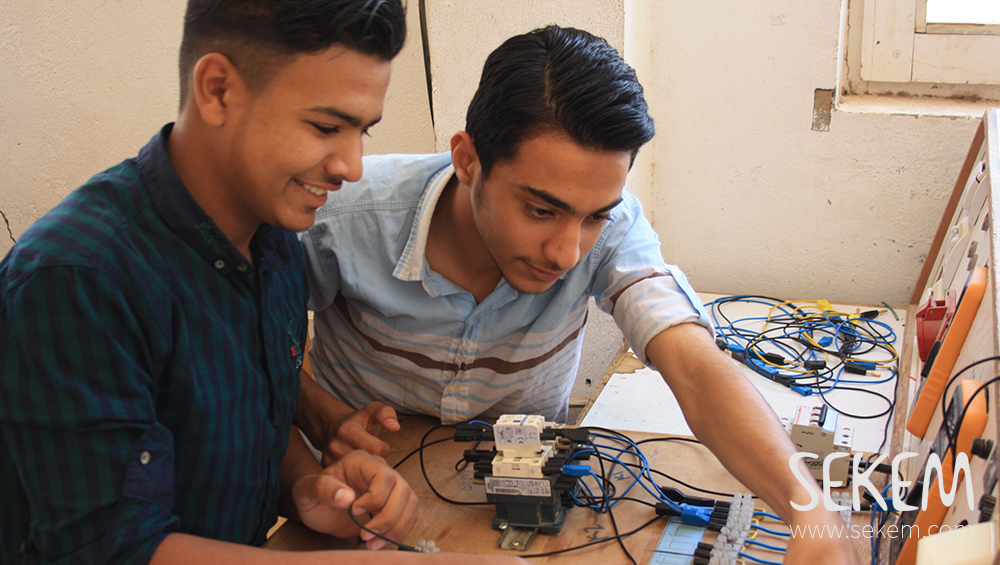
Heliopolis University for Sustainable Development
Similar targets are pursued by different departments of the Heliopolis University for Sustainable Development, the first non-profit university in the Middle East that is declaring sustainable development as its overall guiding principle and that was established under the umbrella of SEKEM Initiative. The curriculum is targeting to support students to become social entrepreneurs, who are able to face and overcome tomorrow’s challenges through innovation, collaboration, and technology. By a renewed understanding that integrates teaching, learning, research and practice the, currently more than 800, students receive the possibility to develop holistic and critical thinking, which is the basis for realizing challenges, feeling responsibility and taking action.
Research to develop solutions
“Education and science are going hand in hand. Together they are promoting interest in the world and creating awareness about the value of self-knowledge and personal advancement. At the same time, they are strengthening the trust of a society in its own abilities, which helps to understand challenges and develop solutions”, Dr. Ibrahim Abouleish, the founder of SEKEM and the Heliopolis University says. Education and research need to move into the same direction: research may lay the foundation for intelligent, environmentally friendly new products, and resource-efficient business practice and production methods. Education should not just be the acquisition of knowledge, but also promote the responsible use of resources and strengthen confidence in an individual’s ability to independently identify problems and to cope with them for the benefit of environment and community.
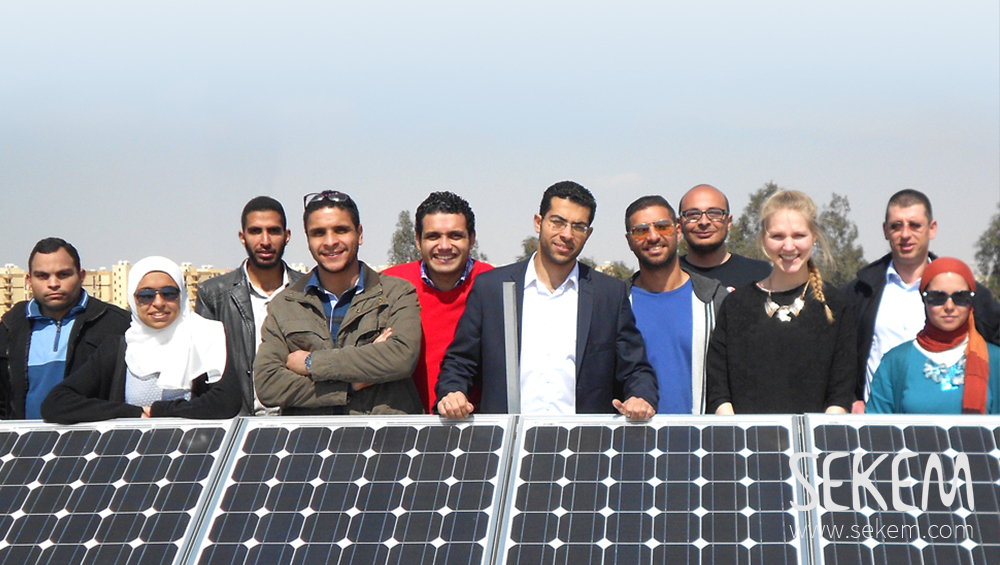
Since 1999, Heliopolis Academy and since 2012, Heliopolis University for Sustainable Development is conducting researches in fields like phytopharmaceuticals, Biodynamic agriculture, renewable energy, sustainable economics and green technologies or social sciences and humanities.
Opening the eyes for the beauty and value of nature
Cultural and artistic activities are also included to all SEKEM employees’ everyday work. SEKEM believes that art can initiate a transformation process, which trains the awareness of people and helps them by a more precise observation of the environment and closer involvement in global development issues. Regularly, SEKEM co-workers can be found in drawing classes, working with clay or on stage performing a theatre play or music. Arts and culture raise the sense for the beauty and values of nature and thereby foster consciousness for the environment.
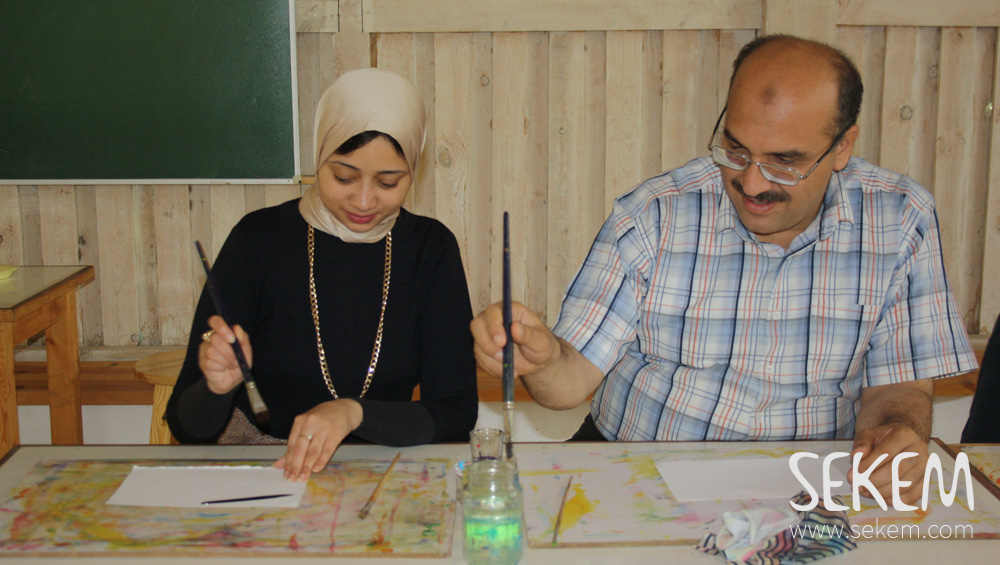
SEKEM agrees with Wiliam Thierry Preyer, who said that agriculture needs to be considered on scientific basis but above all as applied sciences that help understanding the value of working together with nature and not against it as it is the foundation for the material and intellectual well being of a society. Only by communities that foster learning, consciousness and development harmony with nature can be achieved. Therefore, SEKEM focuses on educational and cultural knowledge to sustainably counter Egypt’s growing desertification in a holistic way by offering a place where every human being can unfold his or her individual potential.
Christine Arlt
Read more about how SEKEM tries to combat Egypt’s desertification in:
Ecology
Societal Life
Economy
Every Desert Hides a Well

